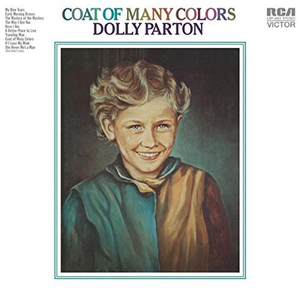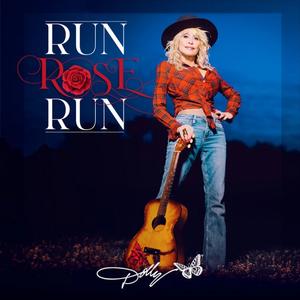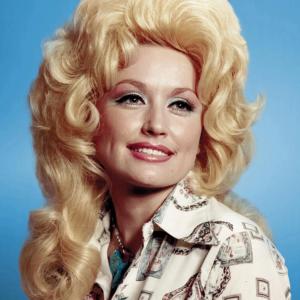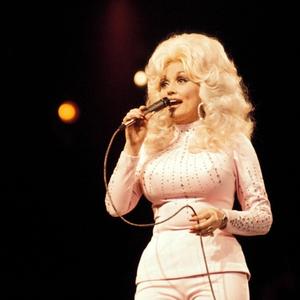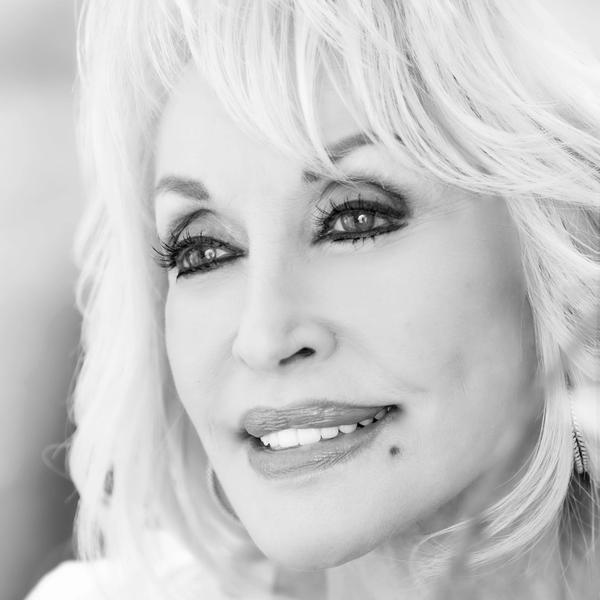




Link copied

In the near 60 years since she moved from Pigeon Forge to Nashville to make her fortune, Dolly Parton has become more than just a singer and a songwriter.
Her songs, often inspired by the disenfranchised and the downtrodden, bring a multiracial audience and LGBTQ+ community members, churchgoing families and big hatted country music lovers all together in one space of love and admiration.
Holler spent a long weekend listening to her vast collection of songs and picked out 20 of our favourites.
Love Is Like A Butterfly
Dolly began every episode of her Dolly TV show in the 70s with this breezy paean to her beloved Lepidoptera, coming down from the ceiling on a giant rope swing decorated with flowers and butterflies.
“I have loved butterflies from the time I was very little”, Dolly explains about the insects that have become so symbolic for her over the years. “I used to get lost in the woods, chasing them. They were beautiful and colourful, and they were doing something, being productive and being harmless”.
My Tennessee Mountain Home
Dolly went back to her hillbilly roots on her 1973 concept album My Tennessee Mountain Home. The title track finds her cheerfully reflecting on a carefree childhood spent in her cabin on the banks of the Little Pigeon River.
Within, she embraces the uncomplicated joys of growing up a mountain girl; holding hands on a porch swing, listening to the crickets in the fields nearby and walking home from church.
Touch Your Woman
“It’s sexy and it’s intimate”, says Dolly about the sultry title track to her 1972 album, “but it’s also innocent and pure”.
“We can’t let some little upset make us bitter and calloused,” she continues, “let our love build and grow. Just touch me, tell me that you’re sorry, or let me say that I’m sorry. Whoever is sorry, let’s just do it and touch again”.
There really isn’t anyone in the world wiser than Dolly Parton.
Here You Come Again
“I’m not leaving country, I’m taking it with me”, Dolly explained to her detractors, as she hit back at country music purists upset by her embracing seventies pop and disco in an attempt to widen her appeal.
‘Here You Come Again’ was a spectacular blending of 70s soft-pop production with country steel guitars; a highlight of the smoother pop sound that dominated country for the next decade.
One of four songs on this list not written by Dolly, ‘Here You Come Again’ was written by songwriting heavyweights Barry Mann and Cynthia Weil, giving Dolly her first crossover hit in 1977.
The Seeker
Dolly didn’t realise that she hadn’t mentioned God or Jesus once in this profoundly inspirational gospel song from 1975 until years later. It’s their omittance that gives ‘The Seeker’ its broad universality.
“That’s when I thought that it really is for everybody”, Dolly realised. “If this song is just about seeking a higher power, however you define it, then it’s everyone’s song”.
Potential New Boyfriend
Written by Steve Kipner and John Lewis Parker, this silky pop banger was the only single to be released from Dolly’s Burlap & Satin album in 1983.
Doubling down on her earlier forays into disco on Heartbreaker and Dolly, Dolly, Dolly, Dolly adds a pinch of early 80s New York post-disco to the mix. It even had a dance remix version, just for extra measure.
Wildflowers
Written by Dolly and recorded with Emmylou Harris and Linda Ronstadt for the first of the Trio albums, this sweetly old-fashioned Appalachian folk song tells the story of a misfit young girl who longs to follow her dreams and escape the restrictions of the town she grew up in.
Played out through the metaphor of flowers growing wild on the hillside or contained in gardens, Dolly said; “I knew the difference between beautiful garden flowers and the ones that grew wild. I’ve always been a wildflower, and I’ve always loved that song. It’s going to live forever, I hope”.
Eagle When She Flies
“If I ain’t writing about angels, I’m writing about eagles or butterflies”, Dolly jokes about her predilection for writing songs about things with wings.
This feminist anthem was originally written to be the theme song for the 1989 movie Steel Magnolias - which Dolly starred in alongside Sally Field, Julia Roberts, Daryl Hannah, Olympia Dukakis, and Shirley MacLaine – but they didn’t end up using it in the end.
As the surprise guest at the Newport Folk Festival in 2019, she performed the song with the Highwomen.
Old Flames (Can't Hold A Candle To You)
Written by the married songwriters Hugh Moffatt and Pebe Sebert, Dolly took this sweet ballad from Dolly, Dolly, Dolly to the top of the country singles chart in 1980.
Sebert came up with the title after running into an old boyfriend; she came home and told her husband about it and together they turned it into a song.
In an added twist to the story, Sebert’s daughter is the singer Ke$ha, who went on to record a version of ‘Old Flames’ as a duet with Dolly for her album, Rainbow.
Down From Dover
“Lord, I just can’t get depressing enough, can I?” Dolly jokes about this tale of an unwed pregnant girl who runs away from home after her parents disown her.
Pleading for the baby’s father to join her and “hurry down from Dover” before the baby is born, Dolly has always been adept at portraying the darker side of a working-class female experience; this heartbreaking slice of southern gothic ends with the baby being stillborn and the father never arriving.
It was recorded as a duet by Nancy Sinatra and Lee Hazelwood and originally appeared on Dolly’s Fairest of Them All album in 1969, before she revisited it on Little Sparrow in the noughties.
Islands In The Stream
Originally written by the Bee Gees for Marvin Gaye, they eventually countrified it for Kenny Rogers, who turned it into a duet with Dolly and took it all the way to no.1.
The pair went on to have another hit with ‘Real Love’ and recorded a Christmas album together, as well as the tear-jerking title track to Kenny Rogers’ final studio album You Can’t Make Old Friends.
To Daddy
Originally intended to be the first single on an upcoming Dolly and Porter Wagoner album, the pair fell out over this feminist saga when it was originally written.
Dolly went against Porter’s wishes and let Emmylou Harris record and release it as a single. When they played her a demo of it in the studio, she told them she just had to have it for Quarter Moon In A Ten Cent Town.
Just Because I'm A Woman
Like all the best Dolly Parton songs, ‘Just Because I’m A Woman’ says a lot in a simple way. This proto-feminist anthem from 1968 was inspired by a real-life conversation she had with her husband Carl after they’d been married a few months.
He asked her if she’d ever had any sexual partners before him and when she told him she had, Carl didn’t like what he heard. So, Dolly did what she does best and wrote a song about it.
Released in the same year as ‘Stand By Your Man’, this anti-slut shaming anthem immediately felt a lot more aligned with the politics of the women’s liberation movement of the time.
Two Doors Down
If someone is on a diet, they spend the whole time daydreaming about what they could be eating if they weren’t. When Dolly Parton’s on a diet, she writes a worldwide pop-country smash hit!
As legend has it, she was staying with her band in a Howard Johnson’s Motor Inn, which was famous for its fried clams, but she couldn’t bear to go down to the restaurant with everyone else if she couldn’t eat anything.
So, she stayed in her room and wrote ‘Two Doors Down’ on some hotel stationery instead; on the same piece of paper she wrote ‘It’s All Wrong, But It’s All Right’.
Why'd You Come In Here Lookin' Like That?
Following the disappointment of her Rainbow album and her ill-fated late 80s variety show, Ricky Skaggs took up the production reins for her 1989 album White Limozeen, catapulting her back into country music.
“I feel like Ricky is more like me musically than anybody else I know”, Dolly says. “He understood the ‘old Dolly’ as far as the pure mountain music and what country music really is”.
This slamming country two-stepper finds Dolly pleading with her philandering ex-boyfriend to stop turning up everywhere she goes, because it keeps reminding her how hot he is.
The Bargain Store
The invitation to “come inside” and the guarantee that you’ll be “completely satisfied” if you do were deemed too risqué by some conservative country radio broadcasters upon ‘The Bargain Store’s release in 1975.
Dolly has always contended that the merchandise she was offering up on this cute slice of country soul was simply her broken heart. God only knows what those radio stations would have made of ‘WAP’.
Coat of Many Colors
Written on a tour bus on the back of a dry cleaning receipt for one of Porter Wagoner’s suits, this Dolly classic tells the story of how her mother stitched together a coat for her daughter out of rags given to the family.
As her mother sewed, she told Dolly the biblical tale of Joseph and his coat of many colours. The next day, excited with her new coat, a young Dolly rushed off to school "with patches on my britches and holes in both my shoes", only for the other children to make fun of her for wearing a coat made of rags.
The coat and the framed dry cleaning receipt now hang in the Chasing Rainbows Museum in Dollywood.
9 To 5
Starring alongside Jane Fonda and Lily Tomlin, Dolly had to write her first worldwide no.1 with her fingernails, as she wasn’t allowed her guitar on the set of the movie 9 To 5 with her.
She wrote songs with the click of her acrylic fingernails for accompaniment during the day, before and taking them back to her hotel in the evenings to finish them off with her guitar.
The up-tempo dancefloor filler was eventually spliced together with ‘Independent Women Part 1’ by Destiny’s Child in a bastard pop mash-up by David and Stephen Dewaele, also known as 2ManyDJs.
I Will Always Love You
“I was so emotional, I was crying when I was writing it”, Dolly said of the song that would go on to be one of the biggest no.1 singles of all time when Whitney Houston recorded it for The Bodyguard soundtrack.
Written as a way of explaining once and for all to Porter Wagoner why she wanted to leave his show to pursue a solo career, it was a song that Dolly always says “came straight from the bottom of my heart”.
Elvis famously wanted to record it, but his manager demanded half the copyright, so Dolly turned him down. That’s Dolly through and through; if he had been Willie Nelson, Elvis could have bought the whole song for $200.
Jolene
“Every band can sing it, and every woman can relate to it”, Dolly said about the song that has gone on to be covered by everyone from The White Stripes to Ellie Goulding.
She wrote the song after meeting a young fan called “Jolene” backstage and thinking the name had a nice ring to it, basing it loosely on her husband Carl flirting with a girl in a bank.
Next time you think you’ve accomplished a lot in one day, it’s worth remembering that Dolly Parton wrote ‘Jolene’ on the same day that she wrote ‘I Will Always Love You’. We could all try a little bit harder.
After all, what would Dolly do?
~~
Subscribe and listen to Holler Best Dolly Parton Songs Playlist below:

For more on Dolly Parton, see below:


